As illicit trade becomes more advanced, how do governments protect their revenues, citizens, and natural resources? Meet the insiders at OpSec, where pioneering strategies, innovative technologies, and deep industry expertise come together to deliver a proven solution for governments worldwide.
Our dedicated team, including optical scientists, integration engineers, and analysts, not only understands the intricacies of governmental regulations, but thrives on solving these challenges with innovative thinking. Hear directly from the experts on topics they are passionate about as we share their Voices and Viewpoints.
Steven Proudfoot, our experienced Government Solution Product Director, delves into our proactive approach to excise revenue and regulatory schemes. Driven by his desire to understand and solve country-specific pain points, Steven shares his experience of working alongside a larger team to advise government agencies and partners on how to best protect their country from illicit trade.

Steven Proudfoot | Product Director, Government Solutions
Steven advises government agencies and partners worldwide on how to best protect their country from illicit trade. He has a deep understanding of their pain points and works alongside governments to conduct country-specific research and implement solutions that protect excise revenues and the safety of their citizens.
Q: What challenges do governments face when fighting illicit trade?
A: Governments implement tax stamp and traceability solutions to address counterfeit goods, illicit production, and smuggling. However, several challenges can arise during implementation. One issue is selecting the most appropriate stamp technologies for the target industries, while ensuring enforcement officers can effectively enforce the program. For instance, in fast-paced, wet production environments where traditional tax stamps may not adhere well, direct to product printing with secure unique codes can be a viable alternative. Another consideration is the specific market dynamics of each country, particularly the balance between large manufacturers and small importers. Developing the technical solution that monitors both effectively while remaining practical to implement and manage is crucial.
Q: How do you support government agencies to protect excise revenues in unique ways?
A: I start by conducting a country-specific analysis to identify challenges and determine the key data required to address them. Each country presents unique complexities, such as geographic boundaries, tax structures, market dynamics, regional legislation, and border control measures, which must all be considered. In one case, I worked closely with our sales and solutions teams to establish an excise revenue and traceability program for a European Union member country that needed to comply with upcoming EU regulations on tobacco traceability. We knew early on that the new rules would require specific unique identifiers to be generated, alongside authentication stamps with specific security features. Through extensive research and early-stage testing with the government, we developed our traceability software to ensure the program met all legislative requirements at launch, even as some were being finalized during implementation.
In another country with a state-owned tobacco sector, we provided authentication stamps and traceability solutions. However, we further leveraged OpSec’s broader technology portfolio to identify infringing tobacco sales and damaging social media content. Using our online brand protection technologies, we uncovered and enforced against multiple violations, helping to safeguard their reputation and the government’s revenues.
“I worked closely with our team to establish an excise revenue and traceability program for a European Union member country that needed to comply with upcoming EU tobacco traceability regulations.”
The Tobacco Products Directive 2014/40/EU established an EU-wide system for tobacco traceability.
Q: What type of data should be collected?
A: Our approach is now firmly centered on delivering actionable business intelligence to our clients. While our Insight traceability platform enables the collection of extensive data, it is critical to maintain a focus on the key objectives at hand. Governments typically require insights, including information on domestically produced excisable goods, imported products, enforcement activities and their locations, and the alignment of this data with excise and import declarations. However, it is always important to recognize that the specific data and intelligence types collected for one country may not necessarily be appropriate for another.
Q: Besides losing excise revenue, what are some other common concerns?
A: A top priority for governments is ensuring the health and safety of their citizens. We already provide solutions to help government clients authenticate type-approved products, ranging from cigarette lighters to electrical equipment. Many countries enforce vehicle registration to protect citizens from dangerous vehicles and combat organized crime, and this is an expanding area of our government portfolio. We’re also working to expand existing programs to include the protection of vehicle tires and motorcycle helmets, as the use of reused or substandard products poses significant life-threatening risks.
Environmental concerns are also growing. Governments are increasingly focused on protecting valuable natural resources like timber and fuel. The illegal logging trade is a major contributor to deforestation, while illicit fuel trading not only results in revenue loss but also impacts jobs, drives criminal activity, and causes environmental damage. As a result, several countries have adopted timber and fuel marking programs to combat these issues.
“Governments are increasingly focused on protecting valuable natural resources like timber. The illegal logging trade is a major contributor to deforestation.”
15%–30% of all wood traded worldwide is from illegal logging.
Q: Are there any emerging trends that governments should prepare for?
A: Traditional traceability programs for alcohol and tobacco are being extended to encompass a broader range of products, including soft drinks, sugar, bottled water, lubricating oils, mobile phones, and even livestock. This has prompted a reassessment of how product identifiers are applied, leading to technologies such as direct-to-product marking, RFID/NFC marking, and embedded digital codes.
There is also an increasing focus on environmental protection, especially in the areas of plastics, batteries, and timber. A global trend is the rise of Digital Direct Return Schemes (DDRS), designed to promote the recycling of single-use plastic containers by offering financial rewards or reimbursement. As environmental concerns grow, governments are facing mounting pressure to implement solutions that address sustainability challenges.
Join the fight against illicit trade
Illicit trade threatens government revenue and citizen safety. At OpSec, we specialize in creating comprehensive excise programs that address the unique challenges faced by governments worldwide. From innovative tax stamps to advanced track and trace systems, our solutions are designed to protect excise revenues and ensure compliance with evolving legislation.
Want to know more? Contact us today to learn how our proven solutions can help you stamp out illicit trade.

